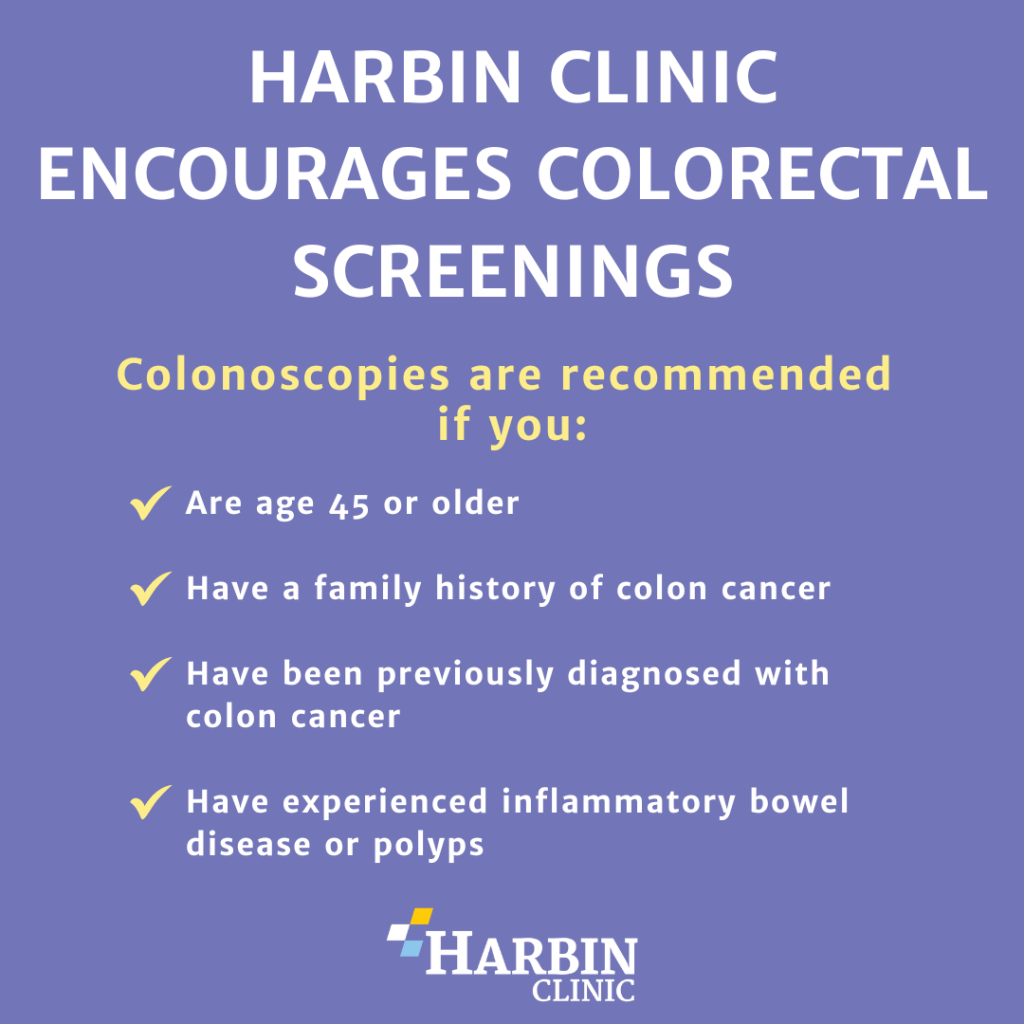(Media release from Harbin Clinic):
Throughout the year and especially in March, Colorectal Cancer Awareness Month, Harbin Clinic encourages everyone 45 years of age and older to schedule a preventative screening for colorectal cancer. In 2024, it’s expected that this form of cancer will be the cause of death for more than 53,000 Americans. The American Cancer Society also reports 1 in 3 Americans are not up to date with colorectal cancer screenings even as the number of people diagnosed under the age of 50 is rapidly increasing.
This March, it’s recommended for those who were teenagers in the 90s to schedule a colonoscopy.
When detected early, the colorectal cancer 5-year survival rate is 90%, and the most essential tools for early detection and prevention are screenings. The most common form of screening, the colonoscopy, uses a thin, flexible tube, allowing physicians to view the length and inner lining of the large intestine, including the colon and rectum. Physicians can also detects colon polyps, or abnormal growths of tissue, during colonoscopies which can turn cancerous. Many polyps can be removed during a routine colonoscopy, preventing colon cancer from developing.
According to the American Cancer Society, colorectal cancer is the second most common cause of US cancer-related deaths when accounting for men and women.
“We encourage everyone age 45 and over to talk to their primary care physician about scheduling a colonoscopy,” says Harbin Clinic Gastroenterologist Dr. George Goldin. “When people think of colonoscopies, they have an expectation that this is a requirement for older individuals. Today, as colon cancer is trending younger, people who need to be screened often feel ‘too young’ for the procedure. It’s incredibly important to reset this expectation in our community.”
Know Your Risk & Keep It Top of Mind
Understanding lifestyle and family-related risk factors for colorectal cancer can help determine inquiry about screenings before the age of 45. The links between diet, weight, exercise, and colorectal cancer risk are some of the strongest for any cancer. Family history, age and personal health history also play a significant role in an individual’s risk.
Don’t Be Clueless:
Because early detection is so important, Harbin Clinic is finding creative ways to connect with those just reaching the minimum screening age through 90s nostalgia, referencing popular movies, music and cultural items.
There may not be significant symptoms for colon cancer, but for those who did the Macarena at prom, waited for dial-up internet, and saw Titanic in theaters with a high school sweetheart, don’t be clueless – it’s time to schedule a colonoscopy. For more information, visit www.harbinclinic.com.
